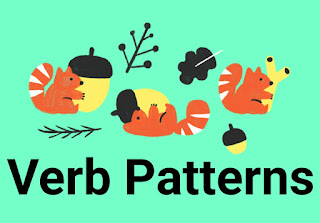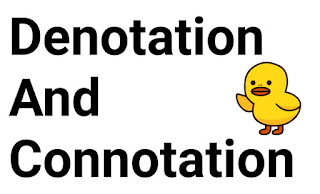VERB PATTERNS
Exercise
Look at the underlined parts of the sentences below and answer the questions.
1. It depends on the weather.
2. I believe in good luck.
3. I remembered to ask Jane.
4. I remember asking Jane.
Is there a preposition after the verb?
Is there an object after the verb?
Is there a second verb and what form is it?
Answers
1. depends + on (a dependent preposition) + the weather (direct object, noun / noun phrase)
2. believe + in (a dependent preposition) + luck (direct object, noun / noun phrase).
Believe can also be followed by in + -ing form (+ noun / noun phrase), e.g. I believe in helping people.
3. remembered + to ask (second verb, the infinitive form) + Jane (indirect object, noun / noun phrase). This means that I asked Jane because I remembered to.
4. remember + asking (second verb, the -ing form) + Jane (object, noun). This means that I have a memory of something I previously did.
We use the term verb pattern to describe the form of words that often follow particular verbs. For example, depend is often followed by the dependent preposition on but it is not followed by about. (A dependent preposition is a preposition that is always used with a particular noun, verb or adjective before another word.)
Some verbs take one or more object(s) while others do not need an object. Some verbs need a compliment, i.e. a phrase that is necessary to complete the meaning of a particular verb in a clause or sentence. For example, in the sentence I am tired, the adjective tired is the compliment.Verbs such as be, feel, become and get need a compliment in order to make sense. For example, she became has no meaning but she became an actor does. In this example an actor is the compliment.
Some verbs are followed by an infinitive form (e.g. I want to go home), while others are followed by an -ing form (e.g. I like living here). Some verbs can have a different meaning depending on whether they are followed by the infinitive form or the -ing form (e.g. remember). Verb patterns after verbs of perception (verbs related to the sense or emotions such as hear, see and hate) can affect meaning, for example I heard him speaking (I heard the act of speaking in progress) and I heard him speak (I heard the complete act of speaking) A good dictionary will tell you the pattern(s) that can follow a verb. 😊



Comments
Post a Comment